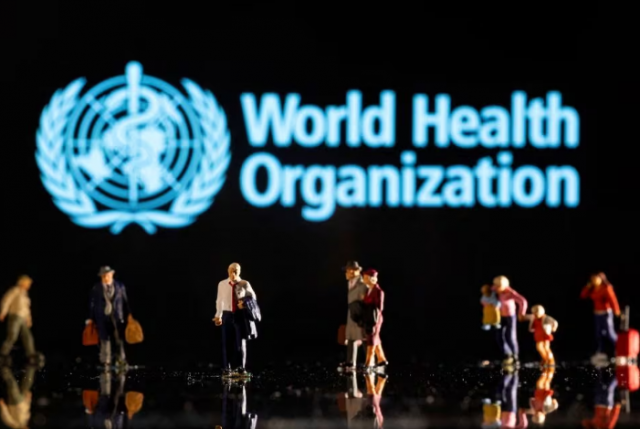State of healthcare in country grim: PMA
‘Health of the Nation’ report for 2024 discusses drug price hike, prevalence of diabetes, heart diseases, HIV, cancer

Pakistan faces an unprecedented health crisis, compounded by its status as the fifth most populous country globally. The World Health Organization’s recent ranking places Pakistan at 124th out of 169 countries, sounding a clarion call for an immediate revision of the nation’s health system. The "Health of the Nation" report for 2024, presented by the Pakistan Medical Association (PMA), outlines a grim state of healthcare in the country, necessitating urgent and comprehensive reforms.
Speaking in the press conference on Thursday at the PMA House, Dr Abdul Ghafoor Shoro Secretary General of PMA revealing the report data said that the government has approved multiple drug price hikes, affecting over 80,000 drugs and burdening the populace. Inflation and the devaluation of the rupee have strained local drug production, making essential medication unaffordable, particularly for the poor. The report urges government intervention to address this crisis, emphasizing the severe impact on public health.
Burden of hepatitis B and C
Pakistan faces a significant burden of hepatitis B and C, with 15 million affected individuals. Lack of prevention, testing, and treatment resources, along with the presence of quacks, contribute to the rising number of cases. The report advocates for better control measures, including vaccinations, to curb the spread of these deadly viral diseases. Unsafe drinking water is a major health concern, causing a high number of deaths. Contaminated water contributes to 40% of deaths nationwide, leading to water- borne diseases, with diarrhea being a leading cause of infant mortality. The report emphasizes the need for addressing water quality issues to improve public health.
Read NIH issues alert for whooping cough cases
HIV and cancer
Pakistan experiences a rapid rise in HIV infections, with 63,202 registered cases. Limited testing capacity, unsafe practices like syringe reuse, and poor awareness contribute to the spread of HIV. The report calls for increased testing, awareness, and access to lifesaving treatment to combat the HIV/AIDS crisis. Cancer is a growing concern in Pakistan, particularly among women, with breast cancer being the most common. Environmental factors and poor dietary habits contribute to the increasing incidence of cancer, making it the second leading cause of death.
Coronary heart diseases and diabetes
The report emphasizes the need for awareness and preventive measures. Coronary heart diseases remain a significant health challenge, with high mortality rates. The report highlights the urgent need for comprehensive strategies to address cardiovascular diseases, focusing on risk factor control, public education, and lifestyle changes. Pakistan ranks third globally in the prevalence of diabetes, with a staggering 30.8 per cent of the population suffering from the disease. The report stresses the severity of the diabetes situation, calling for concerted efforts to address this health crisis.
Early detection, intervention, and preventive measures are crucial to mitigate the increasing burden on the healthcare system. The report also sheds light on the alarming statistics related to road traffic accidents and air pollution.
Read ‘Reduce sugar intake for optimal health’
Road accidents
Pakistan ranks first in Asia for deaths caused by traffic accidents, emphasizing the need for improved road safety measures. Severe consequences of air pollution, both outdoor and indoor, contribute to premature deaths and respiratory infections. The lack of implementation of laws addressing these issues is a cause for concern. Incidents of violence against healthcare workers, particularly during polio vaccination drives, doubled in 2022.
Urgent interventions are needed to protect the well-being of healthcare providers. The report stresses the importance of investing in preventive measures, against the diseases and calls for increased health budget allocation, it also highlights the consequences of climate change affecting healthcare. Despite contributing less than 1% to the global carbon footprint, Pakistan faces significant challenges, emphasizing the need for adaptive strategies and international assistance.
Pakistan faces a double burden of disease, with high rates of various illnesses. The report highlights demographic challenges, high maternal mortality, infectious diseases, lifestyle-related health issues, inadequate access to clean water, and environmental pollution. Urgent action, increased investment, and policy reforms are essential for creating a healthier and more resilient nation The "Health of the Nation" report for 2024 serves as a clarion call for immediate and comprehensive reforms in Pakistan’s healthcare system. The Pakistan Medical Association urges policymakers to prioritize health and implement meaningful changes to ensure a healthier, more resilient nation



















COMMENTS
Comments are moderated and generally will be posted if they are on-topic and not abusive.
For more information, please see our Comments FAQ